UK Rat Catchers: While it may not be a frequent occurrence these days, spotting a rat in your garden or property in the UK can be an unwelcome experience. A single rat sighting might not raise major concerns, but if you start encountering rats regularly or observe multiple rats, it could be cause for alarm as they are known for their rapid reproductive rates.
Although neither of the two rat species currently residing in the United Kingdom are indigenous to these lands, they have undoubtedly established themselves firmly. The brown rat, in particular, is abundant, while the black (ship) rat is now less prevalent. Both species originally hailed from Asia and arrived in the United Kingdom as stowaways aboard ships.
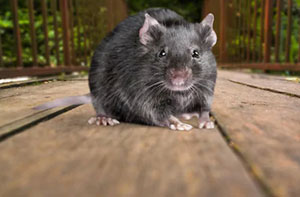
The brown rat, generally larger than its counterpart, the black rat, can weigh approximately half a kilogram and achieve lengths of about 9 inches. Much of the damage attributed to brown rats stems from their need to constantly gnaw to keep their incisor teeth at a manageable length. This incessant gnawing habit leads them to have a particular affinity for woodwork, among other materials. The compulsion to chew not only serves as a means to maintain their dental health but also results in significant structural damage, especially to wooden elements within homes and commercial premises. This behavior underscores the importance of controlling brown rat populations to mitigate the extensive damage they are capable of causing.
Rats may cause a range of problems in homes and business premises around UK and they transmit disease, gnaw through pipes, woodwork, insulation and wires, leave behind droppings, and are generally troublesome. Householders need to report any sightings of rats to the relevant local authorities. You may also report rat sightings on the .gov website HERE.
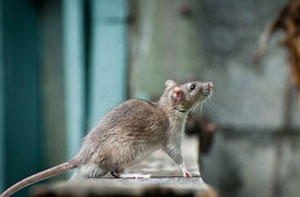
You will in some cases become aware of the existence of rats not by in fact seeing them, but by their indicating their existence by other means. Its possible you might spot holes gnawed into floorboards or skirting boards, you could notice droppings in cupboards or on the floor, you could hear scratching coming from a wall, floor or loft or you may come across a rat's nest in some out of sight location.
If you do not wish to wait for environmental health to solve your rat problem you could call a local UK rat catcher or pest controller who will be a specialist in the business of pest removal. In these modern times rat catchers typically fall into the category of pest control, and pest control businesses do not only deal with rats but additionally wasps, moles, bedbugs, cockroaches, mice, fleas and many other kinds of household and garden pests. (Tags: Pest Control UK, Ratcatchers UK )
Find rat catchers and rat control experts in these UK areas: Mitcheldean, Narborough, Branston, Nettleham, Cheshunt, Bishop's Castle, Lakenheath, Handsacre, Handforth, Royton, Wollaston, Birmingham, Whitburn, High Lane, March, Headley Down, Parkeston, Penarth, Penicuik, Strood, Pontypridd, Weedon Bec, Westcliff-on-Sea, Haddenham, Flint, Grays, Muswell Hill, Puckeridge, Tynemouth, Thundersley, Ince-in-Makerfield, Shalford, Holland-on-Sea, Yeadon, Redhill, Llantwit Major, Castle Cary, Sandown, How Wood, Parbold, Crowle, Milnrow, Bellshill, Wingerworth.
Reporting Rats
We briefly talked about this earlier, so now we'll go into it a bit more. Should you spot rats in a neighbours garden, in a public place or in your own garden it's sensible to report it to the local council. When it comes to rats this is sometimes a free service, even though you'll often be charged for other infestations for instance bed bugs, wasps and cockroaches. Also, it is very easy to report rats on the Government (.gov) webpage which you can find HERE. To get the issue taken care of swiftly schedule a rat catcher HERE.
Rat Burrows
If you've got rats running around the garden, the probability is that there will be a burrow somewhere. Rats love to dig burrows and they commonly do this at the side of solid structures and objects such as garden sheds, garages, patios and walkways. These are the locations to look if you think you have rats nesting there. These are often not simple holes, but substantial systems of burrows, built to use as nesting places, shelter and food storage. Keep an eye out for holes with smooth edges, which may have been rubbed by the continual movement of these busy little pests. The burrow entrances are commonly about two to four inches across. Throw some stuff into the hole and check back the following day to see if it has been moved. This will show you if rats are still in there.
Rats - Telltale Signs
Should you have concerns about rats inhabiting your home or business premises, there are multiple indicators to watch for to confirm their presence. Look out for burrows or tunnels adjacent to solid structures, and inspect for signs of gnawing on various materials like cables, wood, and wires, particularly in areas such as attics. Be alert to scratching sounds coming from within walls and ceilings, often more noticeable at night. Observe any greasy rub marks left by their fur on walls and skirting boards. Furthermore, keep an eye out for footprints or tail marks in dusty environments or soft soil, and be vigilant for dark brown droppings that are similar in appearance to large rice grains. Recognising these signs is crucial for early detection and effective management of a rat infestation.
Problems With Mice
Maybe thought by many to be not so distressing as rats, discovering mice in your house can result in just as many issues. Mice, just like rats, leave droppings, breed quickly, gnaw at things and contaminate food. The same strategies are typically used to solve mouse problems in UK, this means that trapping and poisoning are favoured. UK rat catchers will also be glad to help you get rid of mice infestations, so contact one or check out BARK and get the problem sorted.
Find experts in rat and mice control in these UK locations: Kirriemuir, Hebburn, Ratby, Flitwick, Bungay, Kilmarnock, Minster-on-Sea, Culcheth, Cosby, Dunfermline, Locks Heath, Twickenham, Hullbridge, Finningley, Cleethorpes, Malmesbury, Waddington, Washington, Shenley, Cherry Willingham, Haslingden, Little Chalfont, Skelton, Eton, Perton, Uxbridge, Fulwood, Croxley Green, Martock, Lewes, Redruth, Buckhurst Hill, Markfield, Leicester, Galston, Bedworth, Denholme, Wootton Bassett, Biggin Hill, Prestwick, Wiveliscombe, Failsworth, Melbourne, Fernhill Heath, Dunscroft.
Rat Prevention UK
Dissuading rats before they appear is certainly an effective way of avoiding such problems. Subsequently, rat prevention has to be something to look at even when you do not have a rat problem at the moment. Among the main factors that cause rat infestations is household trash in gardens. Providing both the materials and location for a nest will only attract them. Furthermore, avoid supplying easy foodstuffs by leaving domestic food scraps around and putting bird seed feeders out with grain that's only likely to encourage them. (Tags: Rat Deterrents UK, Rat Prevention UK)
Rat Poison
Using poison is a rather unpleasant method for eliminating rat infestations. This involves coating wheat grains with a toxic chemical, which the rats then consume, leading to their death over several days. The effective placement of the poison is critical and significantly influences the success or failure of this method. Typically, poisons such as brodifacoum, difenacoum, or bromadioline are used. It is vital to ensure that these poisons are kept well away from dogs, cats, and other pets to prevent accidental ingestion. In the United Kingdom, rat poison brands include Propest, Pest Expert, Roshield, RatKil, Elixir Gardens, and Rentokil. Care should always be taken when handling and using these products to avoid unintended harm to non-target animals.
Species of Rat
There are two kinds of rat that you may run into in UK, UK or in fact anywhere else in the United Kingdom. They're the Brown Rat and the Black Rat.
The Brown Rat (Rattus Norvegicus)
The brown rat (Norwegian Rat (Rattus Norvegicus), sewer rat, street rat or common rat) is the most frequently seen rat in the UK and across Continental Europe (also North America). The colouring of this species ranges between grey and brown, it normally grows to about four to nine inches (with an equivalent length tail) with a weight of between 140 and 500g. Nowadays known to have originated in Central Asia, the brown rat was once assumed to have arrived from Norway (hence its name). Brown rats dig burrows and climb effectively, they have excellent hearing but poor eyesight, the female rats can give birth to 5 litters every year, they will consume more or less anything (omnivores) but favour cereal grains.
The Black Rat
Originating in Southeast Asia (India) the black rat, (Rattus Rattus), roof rat or ship rat is also not a native of the United Kingdom or Europe. It's thought to have spread throughout Europe in Roman times, quite possibly traveling in spice shipments. Once a common sight in the British Isles, this rat disappeared when the brown rat appeared. Weighing in at only 75-230 grammes, the black rat grows to a length of around 5-7 inches. Well known for passing on pathogens and diseases black rats can be the cause of salmonella, bubonic plague, rat bite fever, toxoplasmosis, tularemia, typhus, trichinosis, listeria and Weil's disease.
Rat Traps
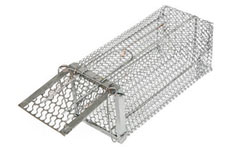
One technique that you might use to control rat problems is to use rat traps. These days there are several different types of rat trap to choose from, making sure you have a range of capture solutions. If you are opposed to the harming of animals, perhaps the capture rat trap are the optimum solution. Rat traps come in all shapes and sizes and include: enclosed poison traps, electronic rat traps, cage traps and spring loaded bait traps.
Rat catchers are ready and waiting to solve your rat problems in these UK towns and villages: Lutterworth, Bushey, Ballingry, Bearsden, Ventnor, Castle Donington, Holmer Green, Kings Langley, Aspatria, Garforth, Yarm, Willenhall, Copthorne, Saltburn, Burslem, Bracebridge Heath, Dukinfield, Broxbourne, Prestwood, Kilwinning, Coulsdon, Billingshurst, Chilwell, Goole, Ardeer, Staveley, Kesgrave, Sedgley, Rotherham, Albrighton, Kidsgrove, Watton, Barwell, Dagenham, Bexhill-on-Sea, Clay Cross, Stokenchurch, Woodley, Manningtree, Longton, Lydd, South Woodham Ferrers, Great Cornard, Peasedown St John.
What Attracts Rats and Mice?
Despite their outwardly cute look, with their twitching whiskers, fur covered bodies and pointy faces, mice and rats can be dangerous and are definitely not animals that you want to be making a home in your house or garden in UK. Mice and rats can cause damage to your home by nibbling through plastic, electrical wires, plasterboard and wood, and are frequently the cause of fires and other problems. Spreading conditions like salmonella, bubonic plague, rat bite fever, toxoplasmosis, tularemia, typhus, trichinosis, listeria and Weil's disease, mice and rats can cause more than thirty different types of disease. So, the primary things that may attract mice and rats to your garden or home are:
- COMPOST/PET WASTE - Remarkably piles of compost and even pet waste can be attractive to rats and mice - there are a few tasty morsels hiding in there!
- CLUTTER - General jumble and clutter in loft, gardenshed or basement will be particularly attractive to mice and rats, particularly if there's a food source nearby.
- TRASH - Accumulations of trash and garden rubbish piled up on your property (especially in the garden) will surely attract rats and mice.
- WATER - Busy little mice and rats have to drink like any other living creature, so sources of water such as pet bowls, birdbaths, seeping sprinkler systems and leaky pipes are a big attraction for these pests.
- ENTRY POINTS AND HOLES - Rats and mice can squeeze through the smallest of holes, so be on the lookout for gaps around doorways, pipes, crawl spaces and grills.
- FOOD - Food that's left lying around or discarded is perhaps the main attraction for mice and rats.
Problems With Moles
Whilst not such a common pest these days moles can also be controlled by rat catchers. Moles cause issues in another way to to rats and are not detested quite so much. Gardens and lawns are mainly at risk when you've got a mole situation. Perfectly mowed lawns ruined by unsightly heaps of newly dug earth are sure signs of mole activity. Using traps is by far the most favourable and humane way to reduce the number of moles. (Tags: Mole Trapping UK, Molecatchers UK)
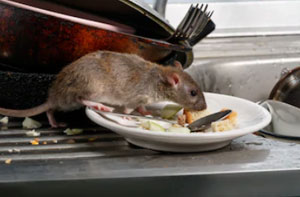
Homeowners with a rat problem in UK are occasionally tempted to have a shot at solving it themselves. So, if this happens to you, what should you do? By looking in supermarkets, hardware stores and shops in the UK area, it's easy to obtain rat traps, rat poisons and similar solutions. Contacting a specialist UK rat exterminator would however be a better idea, unless of course you know exactly what you're up to, as the correct approach is not always the most obvious one. The novice's use of rat poisons is likely to do more harm than good, seeing that you have to be incredibly cautious with them especially when children and pets are around. If you know what's better for you, use an experienced rat control service in UK for a solution to your rat problems. (Tags: Rat Removal UK, Rat Control UK, Rat Exterminators UK)
Pest Control Services UK
UK rat catchers can usually help you with commercial rat control, dead animal removal, mouse control UK, rat infestations, rat prevention, rat baits, domestic rat control, mole catching in UK, cockroach control in UK, ultrasonic pest control, pest control services, household pest control, bird pest control, electronic pest control, insect heat treatments, rat deterrents, restaurant pest control, ant control and other pest control in UK, UK.
Get these and other pest control services in these places: Thelwall, Netherfield, Broughton, Radstock, Adwick-le-Street, Swanage, West Bridgford, Southwick, Ardrossan, Byfleet, Stone, Congleton, Bidford-on-Avon, Elstead, Newhey, Alsager, Laindon, Histon, Oakley, Armthorpe, Spennymoor, Chatteris, East Horsley, Burnham-on-Crouch, Ockbrook, East Grinstead, Montrose, Armadale, Brightlingsea, Bulwell, East Wittering, Lambeth, Bredbury.
Other Pests in UK
Also seek assistance with moles in UK, bees in UK, rabbits in UK, pigeons in UK, mice in UK, ants in UK, clothes moths in UK, fleas in UK, wasps in UK, cockroaches in UK, silverfish in UK, carpet beetles in UK, hornets in UK, bedbugs in UK.
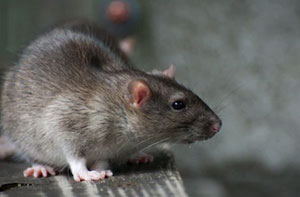 Rat Catchers UK
Rat Catchers UK Pest Control Near Me
Pest Control Near Me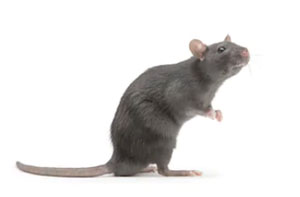 Rat Control UK
Rat Control UKYou should be able to find rat catchers and general pest control services in all of these areas: Haxby, Wragby, Bromham, Old Catton, Fazeley, Melbourn, Chadwell St Mary, Tattershall, Northam, Alloa, Churchdown, Bembridge, Ottery St Mary, Downend, Perth, Rochford, Marchwood, Burntisland, West Mersea, West Hallam, Duffield, Bootle, Great Dunmow, Billingham, Reepham, Farnham Royal, Radcliffe-on-Trent, Egham, Patchway, Ruddington, Purbrook, Holmes Chapel, Crowborough, Chandler's Ford, Ingleby Barwick, Altrincham.
Rat Catching - Rat Problems - Rat and Mouse Control - Pest Controllers - Mouse Control - Rat Catchers - Rodent Control



